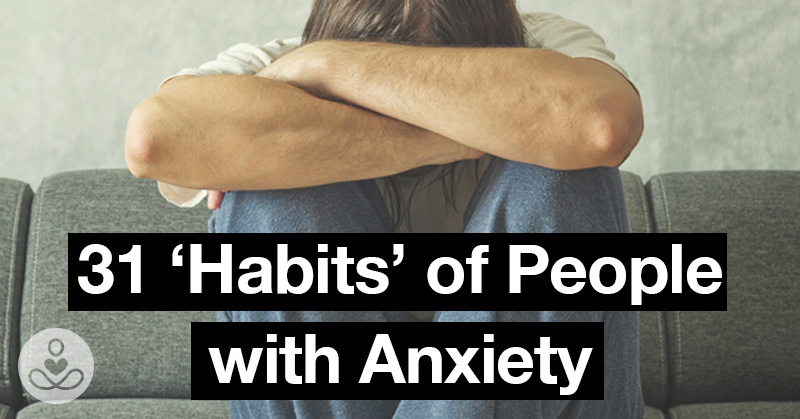What is anxiety? Put simply, anxiety is the incessant voice in the back of your head always reminding you that something bad will happen. However, anxiety is anything but simple. Oftentimes, people can mask their feelings of anxiousness and come across as introverted, strange, or rude. Combined with someone who either does not want to or feels like they cannot speak about their situation, people with anxiety can become alienated from colleagues, friends, and family members.
What’s worse is that symptoms of anxiety are not always outward-facing. They can be like invisible feelings that you nor anyone else can spot or decipher. (Check out this Anxiety Disorder Infographic to know how to spot one.)
Read: 5 Easy Brain Hacks to Calm Anxiety Without Medications
On the other hand

Signs of anxiety are usually visible and easier for loved ones and doctors to see. So, we’ve compiled a list of signs that someone is struggling with an anxiety disorder. “People can have off days or weeks, but once these symptoms start to become more noticeable, say for weeks to months, that might be an indicator that anxiety is present,” says psychotherapist Angela Ficken. [1]
10 Subtle Signs of Anxiety in People with This Disorder

Whether these signs of anxiety are present in children, teenagers or adults, every person is capable of feeling stress out anxious. So, be conscious of that reality before brushing some of these signs off as less important or “hormonal.”
1) They Get Hyper-Critical

Remember the saying, “You are your worst critic?” Chances are people with anxiety tend to hold themselves to the highest of standards. Because they live life with such a hyper-critical mindset, people – sometimes unfairly – tend to hold their peers to those same standards. “Nagging. Sometimes I can be really bossy or nag people because I’m trying to feel in control of something. For example, I get really bad anxiety in cars and I will constantly ask my husband to slow down, even if we are going below the speed limit.” – Sabrina H. [2]
2) They Are Always Late or Canceling Plans

One of the telltale signs of anxiety is chronic lateness or always bailing on plans. The weight of what they’re experiencing can cause the stress to turn into anxiety and completely take over their ability to even start the day. According to Ficken, “If someone is feeling very anxious, the idea of getting up and facing the day can feel overwhelming. It can feel easier to avoid friends, work, family, and be anxious, (although it never ends up making someone feel better.)” [1]
3) They Are in Their Own World
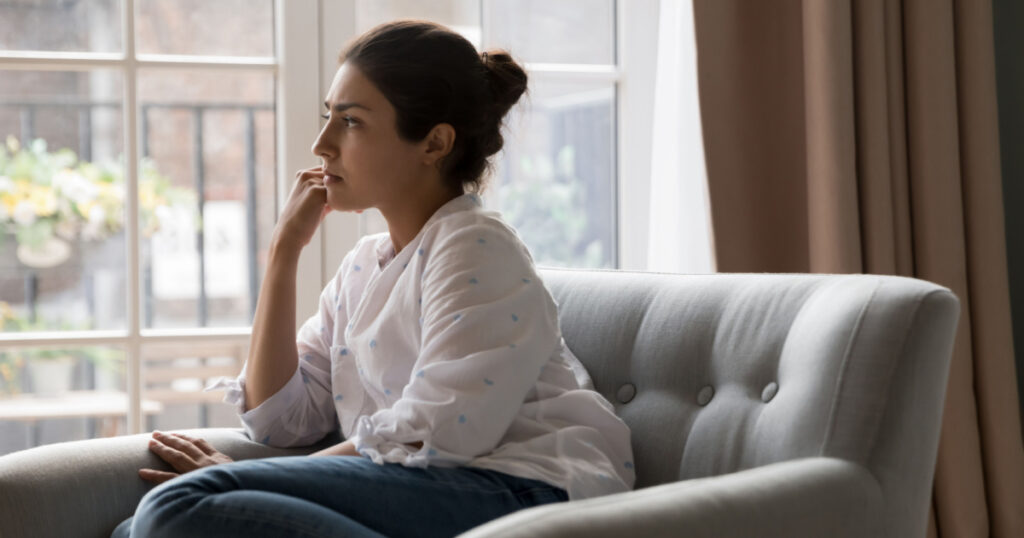
Have you ever noticed someone with anxiety staring blankly at you or off in the distance? This is one of the signs of anxiety that often comes across as someone who is always distracted or rude. Ficken says that “When we get anxious, most of us get stuck in our head about some worry that is going to happen. Someone is talking to us and we attempt to hold onto that conversation as we think about our worry. We are no longer fully present, which makes it that much more difficult to focus on friends, family, and tasks.” [1]
Read: Using Social Media is Causing Anxiety, Stress and Depression
4) They Don’t Like Making New Friends
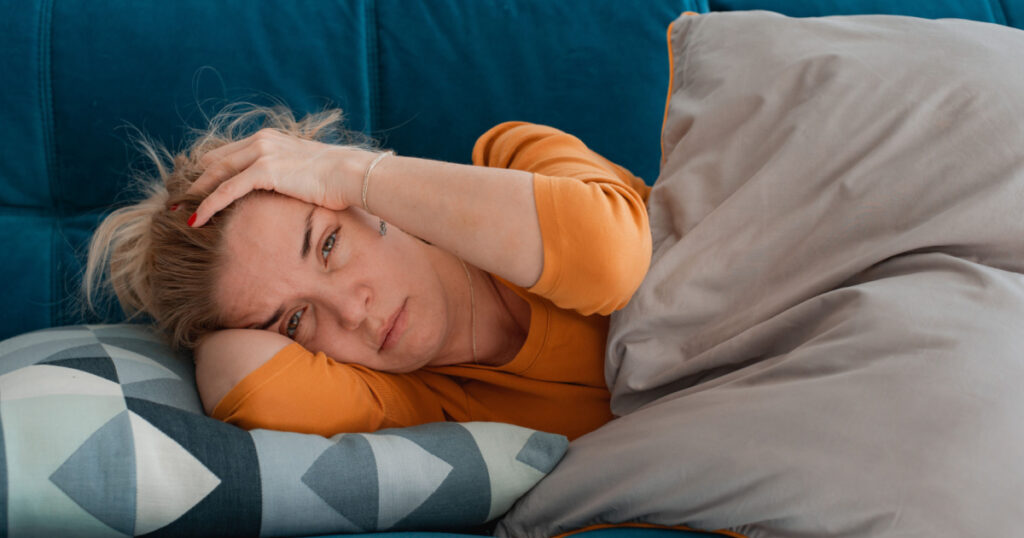
The thought of making new friends and becoming so emotionally invested in new people can be overwhelming. That’s why you won’t usually see people with anxiety disorders being social butterflies and making new friends. Doing so, according to psychologist Dr. Joan Rosenberg, “is often tied to not wanting to feel vulnerable, exposed, or embarrassed, or they have thought into the future and are already worrying about losing a friend that they haven’t even yet developed.” [1]
5) They Need to Be Organized
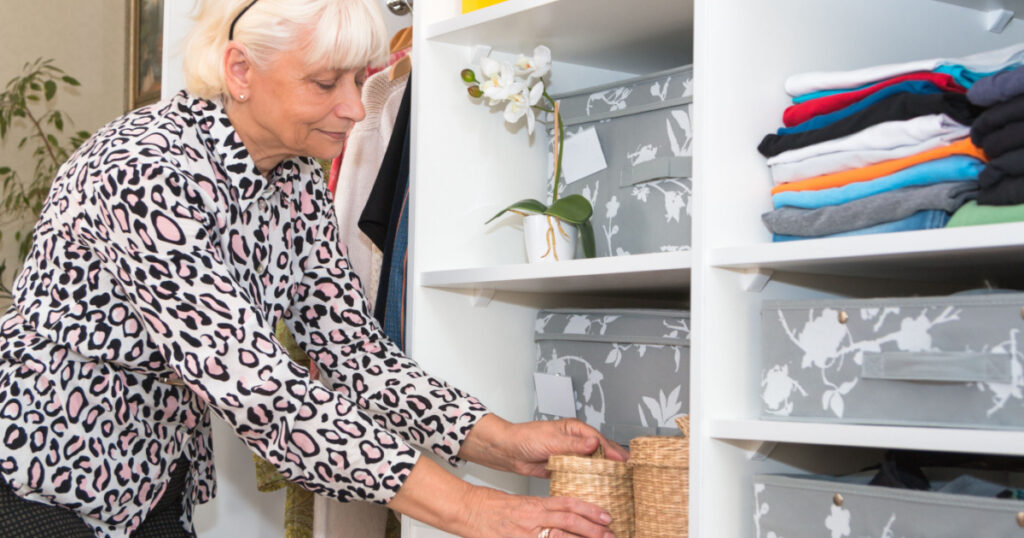
Ironically, people who believe everything is falling apart on the inside need to maintain some sense of order. This is why some people with anxiety are incredibly meticulous and detailed with what surrounds them… It could be their home, office space, or anything. But whatever it is, external order helps give them a sense of inner peace. “Talking out loud to myself and narrating my actions and surroundings to myself. Like, ‘I am here, sitting at my desk, I have a stack of papers here, here are my pens, my tea cup feels warm in my hand, I am turning my computer on now…’ This is actually soothing to me, and I’ve done it since I was a little girl.” – Andréa V. [2]
6) They Don’t Take Risks

For someone with anxiety, one way of avoiding the perceived terror of new experiences or failure is to never take any risks. No risks, no problems. Sadly, this is one of the signs of anxiety that robs so many people from experiencing the good things life has to offer. However, “not wanting to experience embarrassment, disappointment, anger, sadness, or frustration” prevents them from stepping out of their comfort zones.
Read: Intrusive Thoughts: The Debilitating Anxiety Symptom No One Ever Talks About
7) They Feel Lethargic and Get Sick A Lot
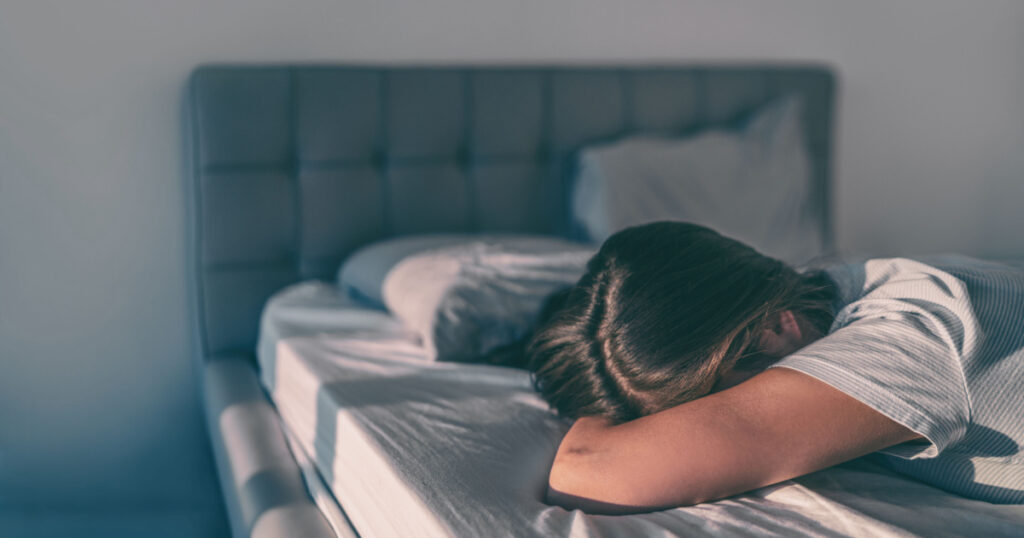
Studies have proven that chronic stress can damage your immune system, which is why people with anxiety often feel sick or lethargic. [3] Because of this, they can spend hours if not days in bed, not feeling well or willing enough to engage with the outside world. Plus, the constant stress of masking anxiety can put an even bigger burden on one’s mind and body. “I sleep a lot. I guess it looks like laziness to most, but being with or meeting other people drains me from energy. I can be tired for days after meeting/talking with somebody. Even being with my friends can drain my energy to below zero. Lately it has been so bad, I’ve started to isolate myself because I just don’t have the energy anymore.” – Sanne V. [2]
8) They Constantly Feel Fatigued and Get Headaches or Migraines
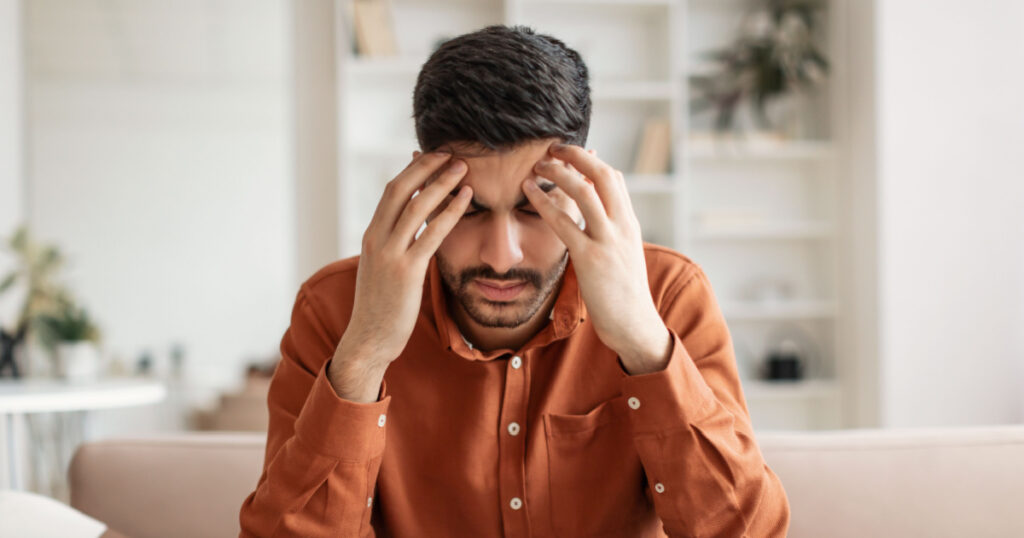
Headaches or migraines here and there are not a big cause for concern, however, chronic ones are. This could be a combination of not eating properly, drinking enough water, spending excessive amounts of time on handheld devices, or not getting enough sleep. When overthinking is keeping someone up at night and affecting every aspect of their waking life – from school to work to relationships – it’s a problem. [4]
9) They Move or Fidget A Lot
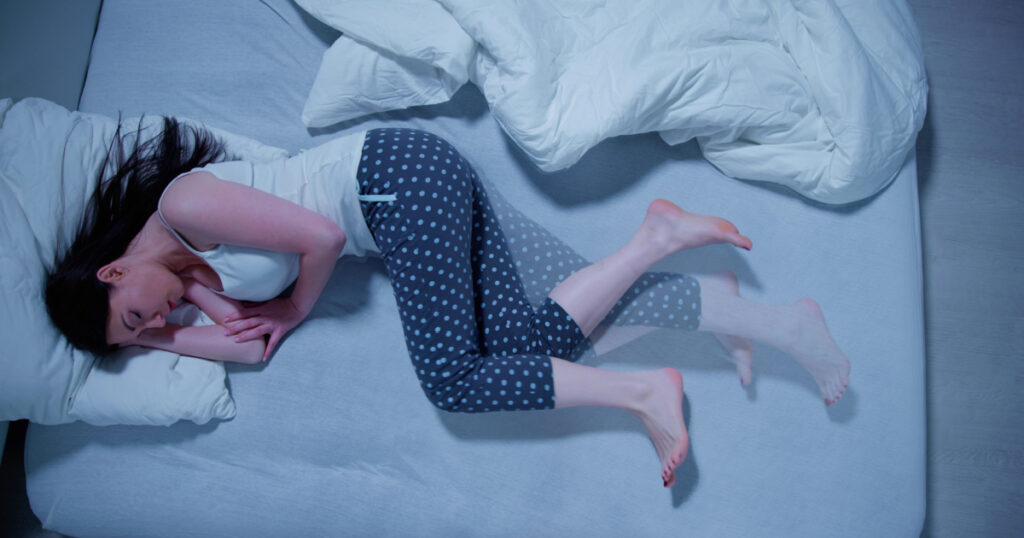
Actions speak louder than words, so when you see someone who is jittery or constantly fidgeting (especially in social settings), this is not one of the signs of anxiety you should ignore. Whether they are fiddling their fingers or showing signs of restless leg syndrome, it’s a clear sign that their stress is rising. “People don’t realize my jitteriness (leg shaking/tapping on desks) is because of my anxiety. If I don’t do something to release nervous energy, it just builds up inside, which is much worse.” – Liz P. [2]
Read: How to Reduce Stress and Anxiety in 10-Minutes or Less
10) They Overreact to Small Mistakes

What may seem like a small mistake you to, for some with anxiety, it’s a huge failure. That’s because, as we mentioned in the first sign, they have a hyper-critical perception of themselves. So, when they aren’t able to achieve certain goals let alone someone’s expectations of them, the reaction can seem quite excessive. “Getting irritable and snapping at little things. This is often accompanied by sensory overload. When I have a panic attack, my thoughts are so intense and engulfing that I could lose my cool at the drop of a hat. I’m normally kind and patient, but sometimes my mind just won’t stop.” – Shelby S. [2]
Anxiety is actually a normal reaction to stress
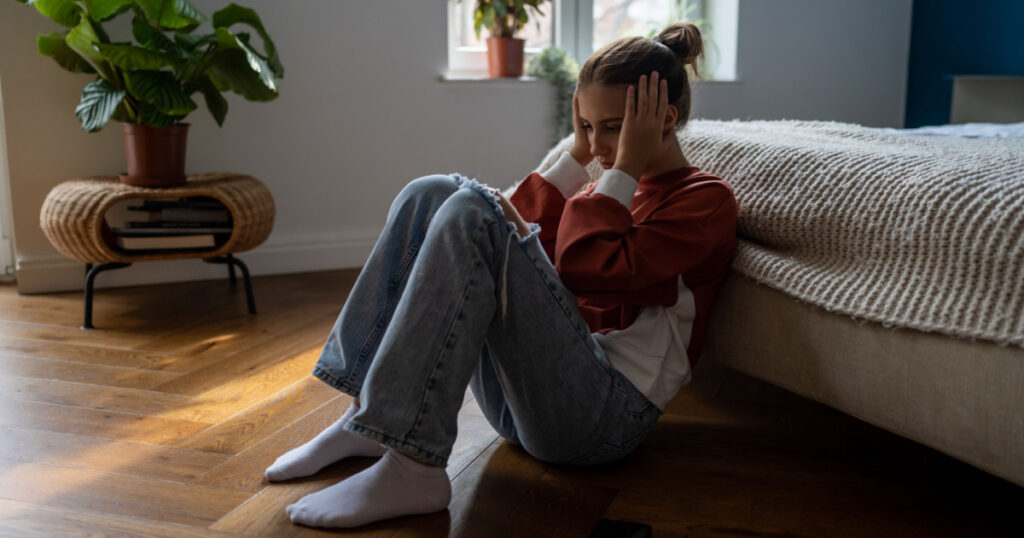
Hopefully being able to recognize these signs of anxiety will help others open up about their intrusive thoughts or symptoms. The more we are able to talk about these health problems openly and safely, the less stigma there will be around the vulnerable individuals who are showing signs of anxiety disorder.
Next Time You Feel Anxious, Listen to This Song: It’s Proven to Reduce Anxiety By 65%
[1] Wolff, C. 9 Super Subtle Signs A Person Might Have Anxiety. Retrieved from https://www.bustle.com/p/9-common-habits-of-people-with-hidden-anxiety-2363223
[2] Schuster, S. (n.d.). 31 ‘Habits’ of People With Anxiety. Retrieved from https://themighty.com/2017/04/anxiety-habits/
[3] Glaser, R., & Kiecolt-Glaser, J. How stress damages immune system and health. Retrieved from https://www.ncbi.nlm.nih.gov/pubmed/20704904
[4] Anxiety in Teens: The Hidden Signs of Teen Anixety You Need to Know. (n.d.). Retrieved from https://www.psycom.net/hidden-signs-teen-anxiety/#3-physicalchanges
